#360 TL431 Shunt Regulator
Testing a TL431 voltage reference (regulator) circuit with manual coarse and fine trim.
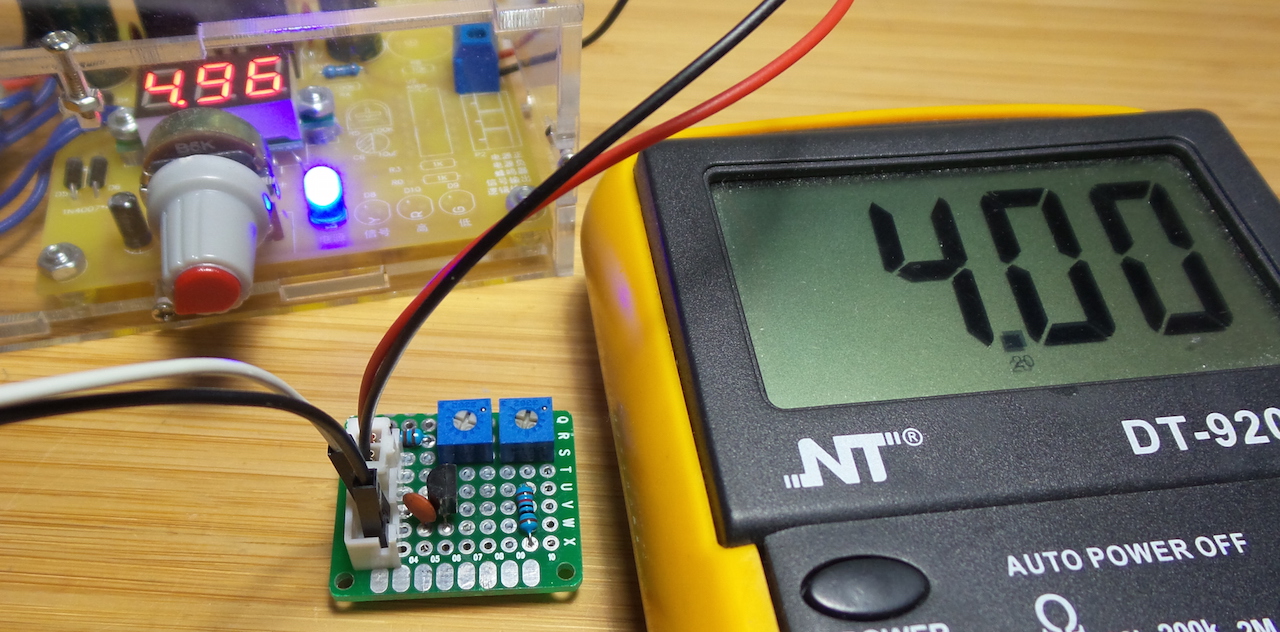
Notes
The TL431 Precision Programmable Reference is a cheap and easily adjustable shunt regulator. The standard grade offers a reasonable 2% reference voltage tolerance.
In this mini-circuit I am testing the common application as a shunt regulator/reference voltage e.g. for use in power supplies. This just requires a voltage divider (R1, R2) across Vref (2.5V). The output voltage will then be:
Vout = (1 + R1/R2) * Vref
For adjustment, I’m using two variable pots to provide course and fine grained control:
| R1 Range | R2 Trim Range |
|---|---|
| Min: 0Ω | 105kΩ - 110kΩ |
| Max: 100kΩ | 5kΩ - 10kΩ |
Construction
See the schematic in EasyEDA.
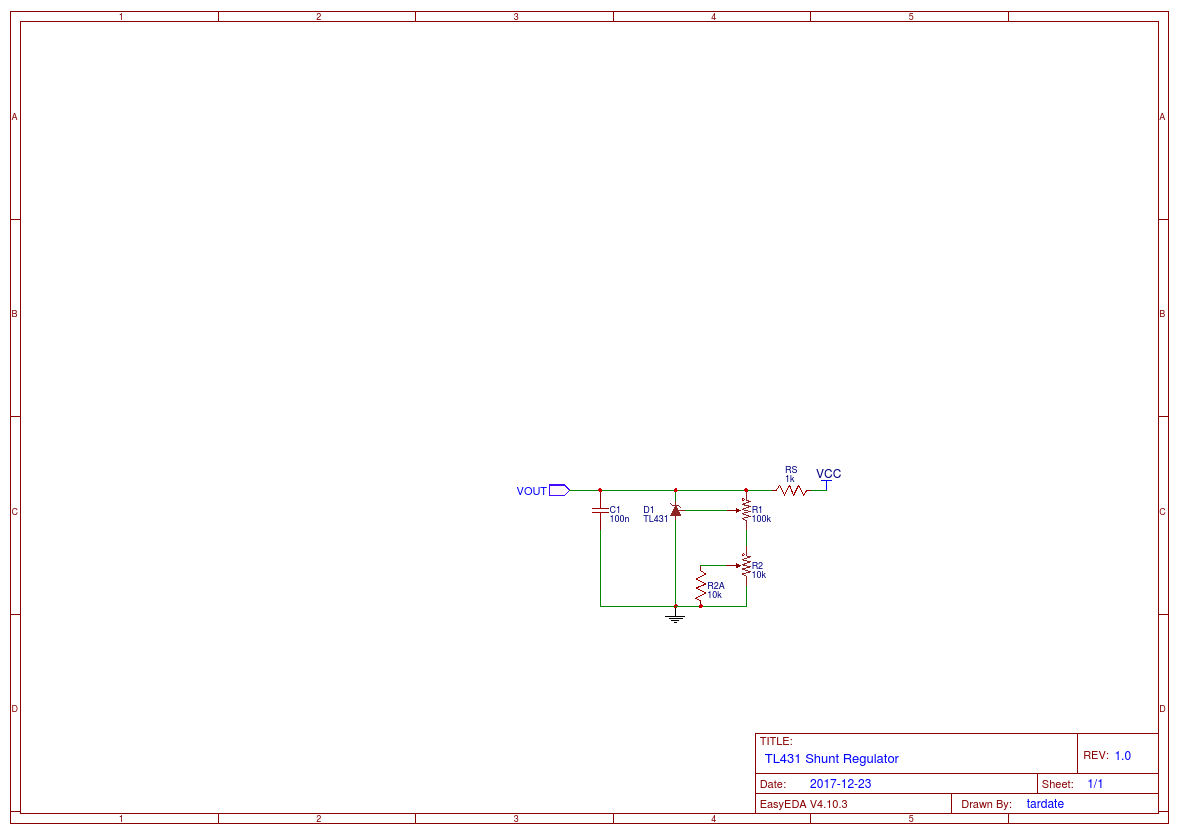
First testing on a breadboard:
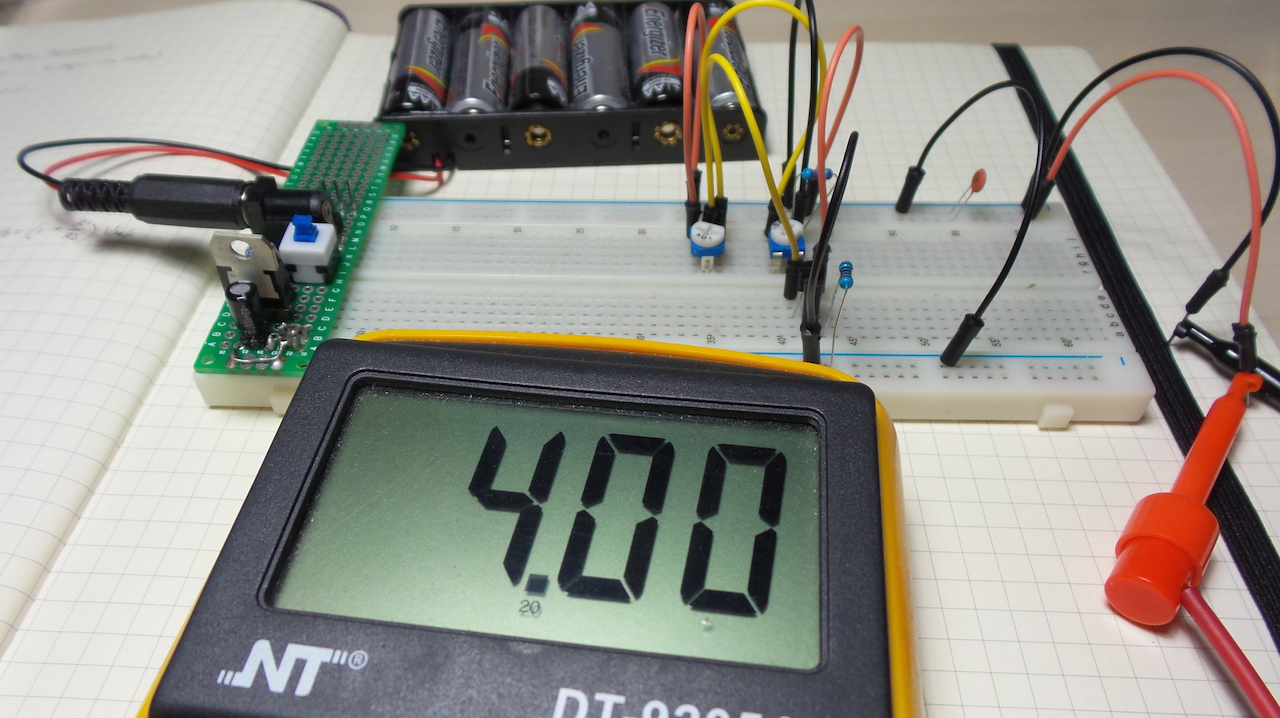
I put the circuit on some protoboard to improve the stability:
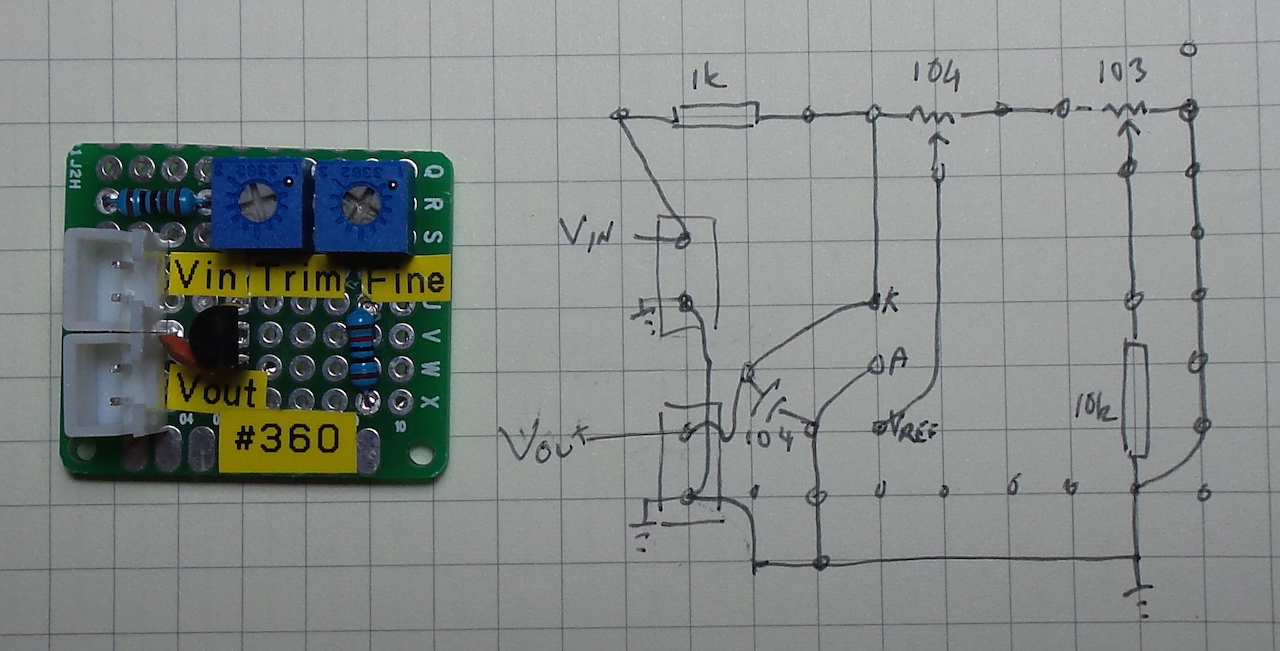
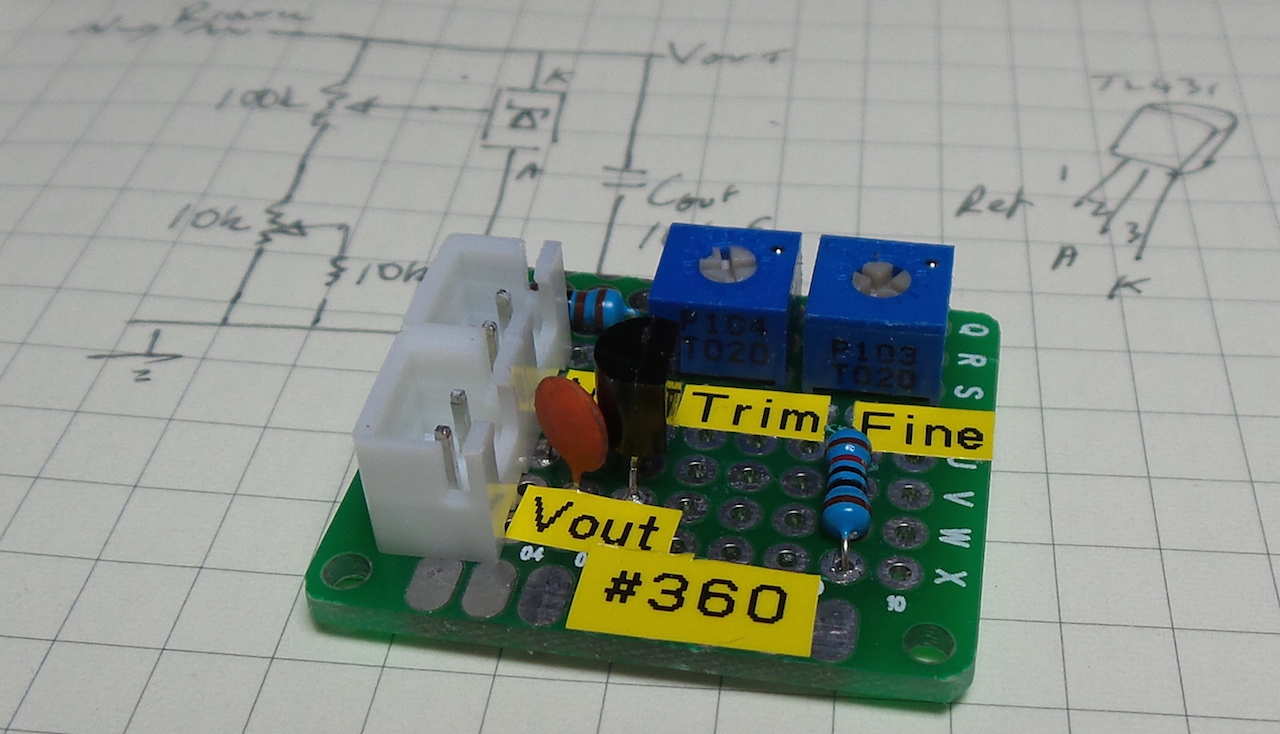
Under test. Set to 4.00V, remains stable as long as input voltage is > Vout.

Here’s a very unexciting demonstration of a quick test:

